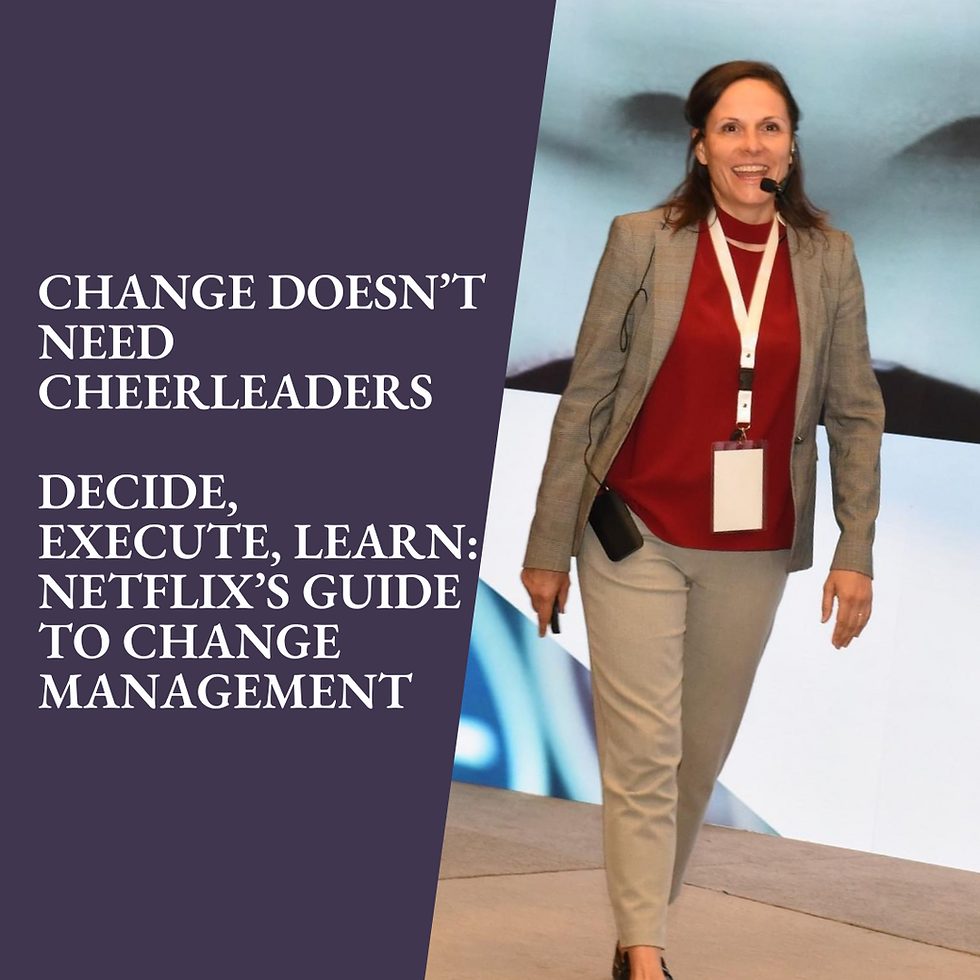Move Away From The Retirement Mindset
- Szilvia Olah

- Mar 24, 2023
- 3 min read
"David Jones is a legend. After 50 years at Marriott, Shangri-La, and then as a professor of hospitality management, David recently took a part-time job at the front desk of a hotel to stay connected to the heart of providing hospitality and to guide the coaching he does with others around the globe." I read this last night, and I love this type of stuff!
Last week, my brother talked about an old man working at Tesco as a cashier and how fantastic he is. He loves interacting with him; he is witty, smiles, and gives wise life advice during checkout. Then I brought up our grandmothers and how they have been socially inactive for 35 years. Our grans retired at 55 and pretty much did nothing in the past 35 years. One would say good, they have worked enough, and that's fair. However, I know how they felt many times. Alone, socially isolated, purposeless, and useless to others which have been detrimental to their mental health. My father retired last year at 70, not because he wanted but due to health issues. Guess what? Six months later, we noticed the signs of depression, lethargy, and lack of interest in things. My brother gave him a job at his company to keep him busy, and he is happy as Larry. He now has a purpose again! This is what he says.
What if we looked at retirement differently? Both my gran looked at it as their hard-earned privilege to do nothing, and they paid the price! Older generations are fantastic, and keeping them active (not even for the money) can be extremely useful in many aspects. There has been a growing recognition of the need to rethink the retirement age and make it a more active and purposeful phase of life.
Many countries have been facing a demographic shift in recent years with an ageing population. This trend has created new challenges for governments as they try to balance the needs of an older population with the demands of a modern economy. One response to this challenge has been encouraging older workers to remain in or return to the workforce through various tax programs.
Tax Programs to Encourage Older Workers
Governments worldwide have been experimenting with different tax programs to encourage older workers to remain in or return to the workforce. In some cases, these programs take the form of tax incentives for companies that hire older workers. In other cases, older workers may be offered tax breaks or other financial incentives to stay in the workforce.
For example, in the United States, a tax credit is available to employers who hire workers aged 55 or older. This credit can be up to $2,400 per worker, and it is designed to encourage employers to retain older workers or to hire new ones. Similarly, in Canada, a program called the Targeted Initiative for Older Workers (TIOW) provides funding to help older workers retrain and upgrade their skills.
Other countries have taken different approaches. In Japan, for example, a program offers tax incentives to companies that hire workers who have reached the retirement age of 60. This program encourages older workers to remain in the workforce and help address the country's ageing population.
Rethinking Retirement Age
While tax programs can effectively encourage older workers to remain in or return to the workforce, they are not a solution to the larger challenge of an ageing population. One key issue that needs to be addressed is the concept of retirement age itself.
Traditionally, retirement has been viewed as a time when workers leave the workforce and begin a period of leisure and relaxation. However, this view of retirement is increasingly outdated and harmful. Research has shown that people who continue to work in some capacity during their retirement years tend to be happier and healthier than those who fully retire.
Moreover, the notion of retirement as a period of leisure and idleness may not be feasible in the context of an ageing population. As life expectancy continues to increase, it is becoming increasingly difficult for governments to fund pensions and other retirement benefits for a growing number of older citizens. This means that older workers must remain active and productive to support themselves and their families.
In conclusion, we must change our mindset about retirement because the old way of looking at it is unproductive. Employing the older generation not only helps economies and companies tackle labour shortages but also helps to keep them physically and mentally fit. Furthermore, it would allow companies to leverage age-related capabilities as less demanding or complex jobs can be given to the elderly allowing the young generations to use their talent, energy, and creativity to drive companies forward. We really don't need a 20-something-year-old person behind a checkout cashier or in call centres. That is a waste of talent and potential.
I always said I wanted to work and keep busy as long as I could walk.

.png)



Comments